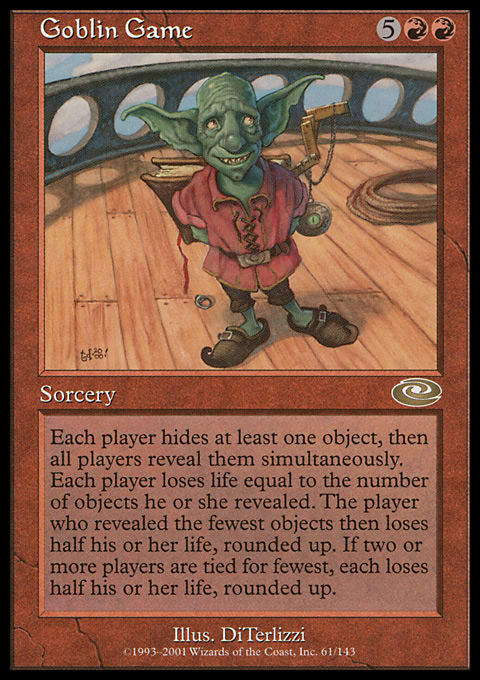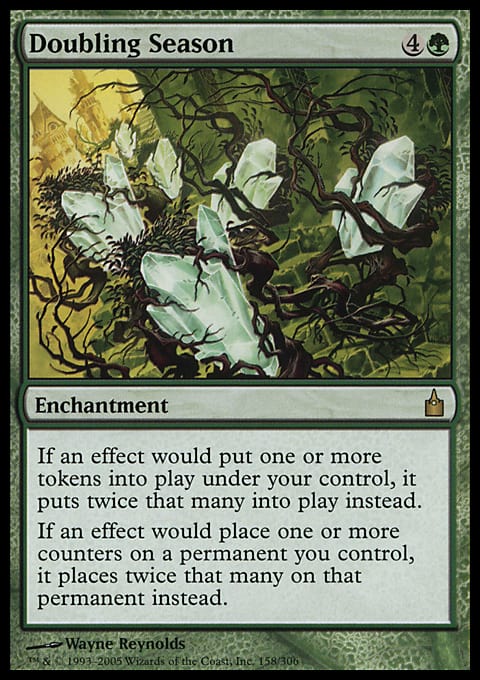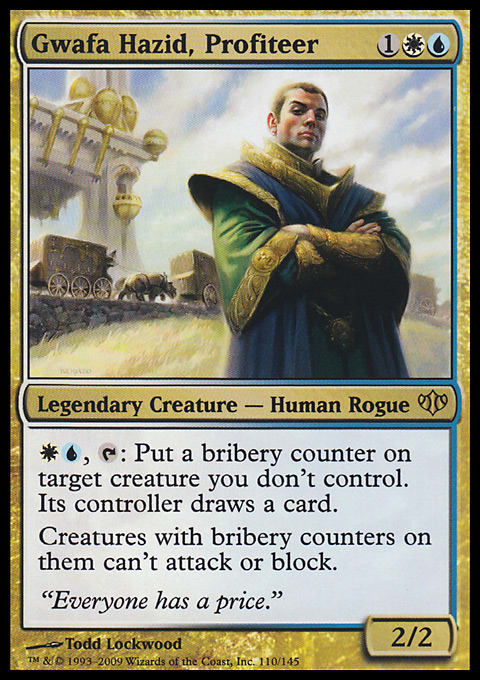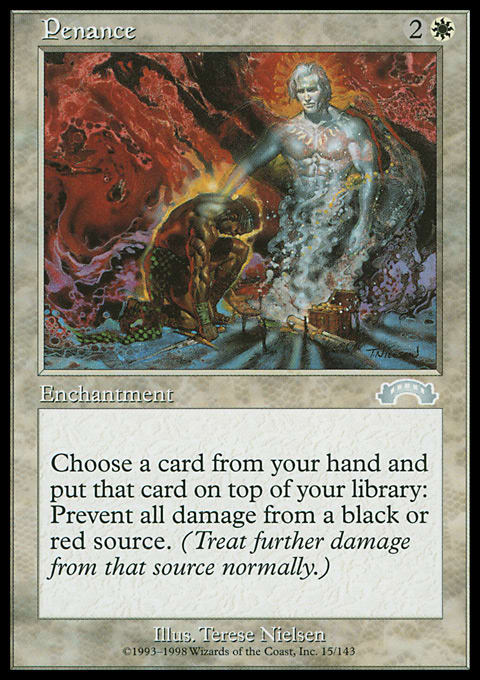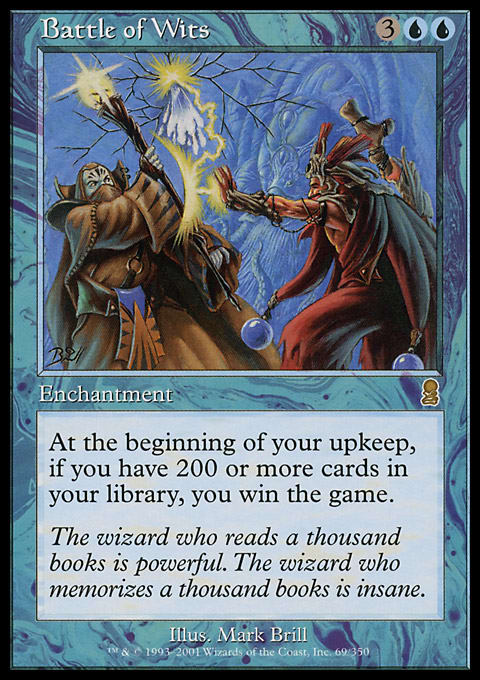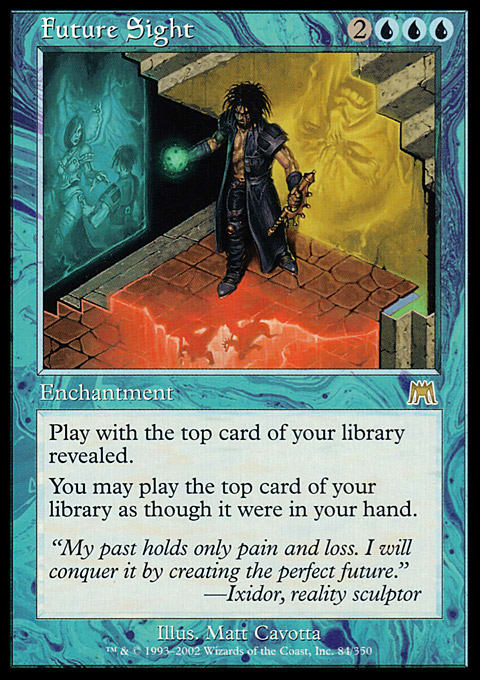Every year at this time, for the last several years now, I’d engage in the same debate: This person is worthy of the Magic Hall of Fame, and that person isn’t. I’d discuss and debate with Wizards employees, other coverage people, and players who had votes. And every year, I’d end my pitch the same way: “Well, if I had a vote, this is who I would vote for.”
This year, I have a vote.
For the first time since I started doing coverage, I’ve been made a member of the selection committee. And let me tell you: It’s pretty sweet.
For the first time, my part in the conversation matters. So, I’m taking this pretty seriously. I may have just one vote, but ask William Jensen how much one vote can matter.
So, before I even started thinking about whom I would select, I laid out some criteria for myself—the same stuff I had been talking about with other voters for years.
Well, that’s not quite accurate. First, I figured that I would be voting for Luis Scott-Vargas. The reason for that is simple enough:
Don’t Game the System
Gaming the Hall of Fame voting isn’t terribly uncommon, but I’ll have no part in it. When people don’t vote for Jon Finkel or don’t vote for Kai Budde, they’re gaming the system, trying to spread their votes around to help bring other players in. However, I view the Hall not as something into which to jam as many people as possible, but as something to keep as exclusive as possible. A Hall of Fame shouldn’t have as many very good players in it—it should only have the best of the best. I want players who changed the game, who dominated for long stretches, or who accomplished too much during their career to avoid. I want to lean more toward Mount Rushmore than the Hall of Presidents (or whatever other mixed metaphors I can throw in here).
So as long as I have a vote, I will vote for the five I feel are most deserving that year, whether they’re mortal locks or not. LSV is a mortal lock, but he’ll also be the first person on my ballot.
Numbers Matter Most
Despite my chosen profession as a writer, I’m a bit of a numbers guy. Numbers simplify. Numbers end arguments before they begin. Numbers can be evaluated, numbers don’t lie (often), and numbers provide us with comparisons that otherwise might be difficult to make.
So yes, I acknowledge that Pro Points now and Pro Points in the past probably aren’t really worth the same. The systems were different, the player bases were different, the barriers to success were different, and the actual game was different.
But that, in my mind, is a tiebreaker at best. Having 300 Pro Points is impressive no matter when it’s accomplished. And remember that we’re looking at the best of the best, so the chances of me tagging in someone with around 150 points are significantly lower. At the upper echelons, those types of era-driven distinctions tend to disappear.
Speaking of which . . .
Money Talks
I have to thank a Matt Sperling Tweet for this insight, but look at the top of the all-time leaders list for premier play winnings.
- Kai Budde
- Jon Finkel
- Gabriel Nassif
- Shuhei Nakamura
- Olivier Ruel
- Paulo Vitor Damo da Rosa
- Raphael Levy
- Luis Scott-Vargas
- Brian Kibler
- Antoine Ruel
That could be argued to very closely resemble the list of the ten best players of all time. It’s not a perfect correlation, but man, is it ever a good starting point.
Cheaters Have Paid Their Dues . . . Mostly
This year, we can call this the Saito rule. For those who don’t know, Tomoharu Saito was banned for eighteen months for repeatedly pushing slow play beyond acceptable bounds. He was accused of stalling, the DCI found enough evidence to ban him, and to make matters worse for the Japanese former Player of the Year, they stripped him of the Hall of Fame induction he was set to receive that year.
In other words, he was hit hard by the ban hammer.
Then, this year, facing every scrutiny imaginable, he came back and casually placed third at Grand Prix Sydney in January.
I think, for the most part, Saito has paid his penance, but that doesn’t mean I would vote for anyone accused of cheating. Even if Saito’s pattern of play was rampant throughout his entire career, it would be very, very difficult to say he only earned his many accomplishments through cheating. There’s really no evidence to say that’s the case. You’d have to be pretty slick to earn five Pro Tour Top 8s and a whopping seventeen Grand Prix Top 8s due purely to cheating. And having seen him play, I can tell you he’s certainly among the best ever.
That said, there is a line—albeit a fuzzy line. For example, were Alex Bertoncini ever to be eligible, I very probably wouldn’t vote for him.
And for the record, I consider what Guillaume Wafo-Tapa did to be a forgivable offense. If I considered him in my top five for this year, I would vote for him (spoiler alert: I don’t).
Community Contributions Matter . . . to a Point
I do think Halls of Fame can have places for people who contributed to the game outside playing. The baseball Hall of Fame is no less prestigious because it houses commissioners, owners, and managers. Those types of people play important roles in the game and should be commemorated.
But the Magic Hall of Fame, for better or worse, isn’t set up that way. First of all, it’s not a museum. No one peruses the Magic Hall to learn about the game’s history. Richard Garfield isn’t in the Hall of Fame. There’s a requirement for entrance into the Hall that requires individuals to have played pro-level Magic—a lot of pro-level Magic, in fact. And with that threshold going up to 150 Pro Points next year, Wizards has reaffirmed the commitment to that type of entry requirement.
Plus, the incentive for entrance is that you are invited to pretty much everything. You’re qualified for life. Other, more historically minded halls don’t do this.
So, while community contributions certainly matter, I probably emphasize them less than most. Saito’s shop, Willy Edel’s contributions to Brazilian Magic, and LSV’s online (and now coverage) presence certainly strengthen their cases, but they’re in those positions in the first place precisely because of who they are.
Community contributions will certainly matter to put someone over the top, but I won’t be tripping over myself to justify someone with strictly worse stats making it because of community contributions.
300
Earning 300 Pro Points is like making 3,000 hits in baseball—I don’t think it guarantees your inclusion, but at that point, you need a good reason to keep someone out. Anyone over this line receives serious consideration.
The Votes
So, given all of that, whom did I vote for this year?
Luis Scott-Vargas
I feel weird even having to justify this, so I won’t. LSV is pretty much synonymous with the Pro Tour at this point. He’s an active producer of videos (and, I’ll admit, a personal favorite), has at several points held the unofficial title of best player in the world, is the de-facto head of ChannelFireball, and oh yeah, he has more than 351 Pro Points and is eighth-and-climbing on the all-time earnings list. With four Pro Tour Top 8s (including a win) as well as a Worlds Top 8—plus repeat trips to the final eight at Nationals (when it was a thing)—you can’t really argue with his inclusion in the Hall.
Martin Juza
I hear a lot of chatter that Juza isn’t quite there yet, that he needs another PT Top 8 (he has just two) to get in, but every time I sorted any kind of statistical category to try to figure out my picks after LSV, there was Juza at or near the top of the list. Of this year’s candidates, he’s fourth in earnings (eighteenth all-time), fourth on Pro Points with 318, has fifteen Grand Prix Top 8s (including four wins)—which is more than anyone save Saito—and has finished in the Top 10 of the Player of the Year race five times—more than anyone else. I went into this ready to not vote for Juza, but in the end, I couldn’t get away from it. I don’t know that Juza will make it this year, but he’ll be elected eventually.
Ben Stark
I feel that if Stark hadn’t taken a five-year break from the game, he’d be a mortal lock. It’s rare that there’s a consensus “best” anything in Magic, but Stark has long held the title of best Limited player. He might be voted in this year, but even if he doesn’t, he’ll make it soon. He’s only going to keep putting up results. As it is, his numbers for his time in the game are insane, and respect for him among the pro community is through the roof.
William Jensen
Jensen’s four PT Top 8s speak for themselves, but he’s not the only one with that many on the list. If that’s your only justification, you can’t leave off Scott Johns (with five). Most people don’t seem to be voting for Johns (myself included). His 219 Pro Points aren’t terribly impressive when compared to others either. Frankly, I was impressed with his rededication to the game this year. There’s a bit of momentum and sentimentality involved in this vote; I’ll freely admit that. But that’s not going to stop me from voting for him.
Tomoharu Saito
Saito has more Pro Points than anyone else on the ballot this year. He was already elected once before, being banned for stalling. He has five Pro Tour Top 8s and is eleventh on the all-time earnings list. His stats are not in doubt. The only reason to not vote for him is if you think his ban keeps him out of the Hall. There is an argument there, and I wouldn’t fault anyone for voting that way, but I think he’s paid his penance. Given that, his numbers make him a no-brainer. I went back and forth on this several times, and I was even convinced to cut him at one point. But until and unless I learn more about his cheating than what is already publicly known, I will vote for him and continue to do so in the future.
Others I Considered
- Shouta Yasooka – Yasooka, like Juza, is a Grand Prix master. His performance at the Players Championship last year nearly put him over the top. But . . . he only has one PT Top 8, and it’s a team event. He was really close, and he was actually a last-minute cut after staring at the stats again. Still, 321 Pro Points is really, really hard to ignore.
- Willy Edel – Willy should be in the Hall of Fame one day, and I think he will be. But I just couldn’t bring myself to vote for someone with just around 200 Pro Points—despite his four PT Top 8s.
- Scott Johns – With five PT Top 8s, he has to be in the discussion. But even with those Top 8s, I’m just not familiar enough with his body of work, and his Pro Points and other statistics don’t give him enough numerical force.
- Tsuyoshi Ikeda – He has 313 Pro Points, and I have no idea where they came from. He’s never once finished in the Player of the Year Top 10, and he has only six GP Top 8s. He has four PT Top 8s, but his median finish over a whopping fifty-nine Pro Tours is . . . one hundred twenty-third?
- Makihito Mihara – At one point during Pro Tour Dragon’s Maze, I turned to another coverage reporter and said, “If Mihara Top 8s this Pro Tour, doesn’t that put him in the conversation for the Hall of Fame?” The answer is “yes,” it puts him in the conversation, but he has some gaps on his resume similar to Ikeda. In fact, his numbers are so similar to Ikeda’s that I couldn’t vote for one over the other.













